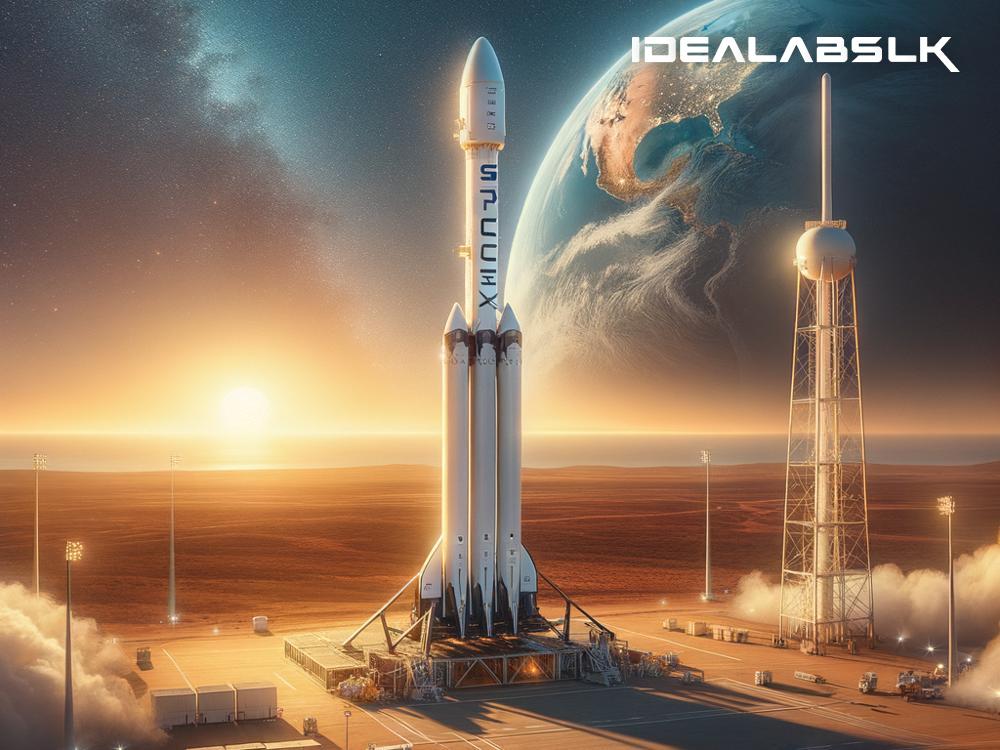SpaceX's Journey to Mars: Shaping a New Era in Space Colonization
Space exploration has always been about pushing boundaries, facing the unknown, and dreaming big. And when it comes to dreaming big, few do it as boldly as SpaceX, the space exploration company founded by Elon Musk. SpaceX's mission to Mars isn't just another item on the list of space missions; it's a groundbreaking venture that's set to redefine our approach to space colonization and interplanetary life. Let's explore how.
A Leap for Mankind
At the heart of SpaceX's vision is the goal of making life multiplanetary, starting with the Red Planet, Mars. Why Mars, you ask? Well, it's relatively close, has a day similar in length to Earth's, and possesses vital resources that could support human life. But it's not the choice of Mars that's revolutionary; it's the vision SpaceX has for human settlement there.
Reusable Rockets: The Game Changer
SpaceX's game changer has been its development of reusable rockets, like the Falcon and Starship. This approach drastically reduces the cost of space travel, making the once-unthinkable idea of regular trips to Mars increasingly plausible. Imagine rockets that can fly multiple missions, much like airplanes do today. This is the cornerstone upon which SpaceX plans to build its Mars colony.
The Ripple Effect
The influence of SpaceX's Mars mission reaches far beyond just landing humans on another planet. Here's how:
-
Making Space Accessible: With the cost of space travel coming down, more entities—be it nations or private companies—can partake in space exploration. This could expedite the development of space tourism, mining of space resources, and even further scientific missions to the outer planets.
-
Technological Innovation: The challenges posed by a Mars mission—from sustaining human life on a hostile planet to developing the means to return to Earth—demand innovative solutions. These advances could spur new technologies that might find applications back on Earth, similar to how the Apollo missions led to developments in materials science, computer technology, and more.
-
A New Perspective on Sustainability: Living on Mars requires careful, efficient use of resources in a closed environment. These lessons could influence how we approach sustainability on Earth, promoting technologies and lifestyles that reduce our environmental footprint.
-
International Cooperation and Peace: The colossal endeavor of colonizing Mars could foster international cooperation, as countries may come together to share knowledge, resources, and financial burdens. Space exploration has historically led to peaceful collaborations, such as the International Space Station, and Mars could extend this legacy.
Challenges Ahead
However, the road to Mars is fraught with hurdles. We must develop robust life support systems, protect astronauts from cosmic radiation, and figure out how to grow food in Martian soil, among other challenges. Moreover, ethical considerations about contaminating another planet, as well as the potential psychological impacts on astronauts during long-duration spaceflights, need thorough examination.
The Ripple Effect on Society
Perhaps the most profound influence of SpaceX's Mars mission may be on society itself. Just as the Moon landing in 1969 inspired a generation of scientists, engineers, and dreamers, SpaceX’s initiative could ignite public imagination about what's possible, encouraging education and careers in STEM (Science, Technology, Engineering, and Mathematics).
Furthermore, the prospect of extending humanity's presence to Mars forces us to reflect on what it means to be human and our responsibility not just to our planet, but also to the cosmos. It's an ambitious project that has the power to unite us in our shared human endeavor.
Wrapping Up: A Future Written in the Stars
While we're still steps away from turning the dream of Martian colonies into reality, SpaceX's Mars mission is undoubtedly influencing the future of space colonization and interplanetary life. By pushing the boundaries of what's possible, SpaceX is not just plotting a course to Mars; it's paving the way for a future in which humans live beyond Earth. Whether it's through technological advances, sustainability practices, or fostering global unity, the impact of this mission will be felt for generations to come.
As we stand on the brink of this new era, one thing is clear: the journey to Mars is more than a mission to another planet; it's a journey to the future of humanity itself.

